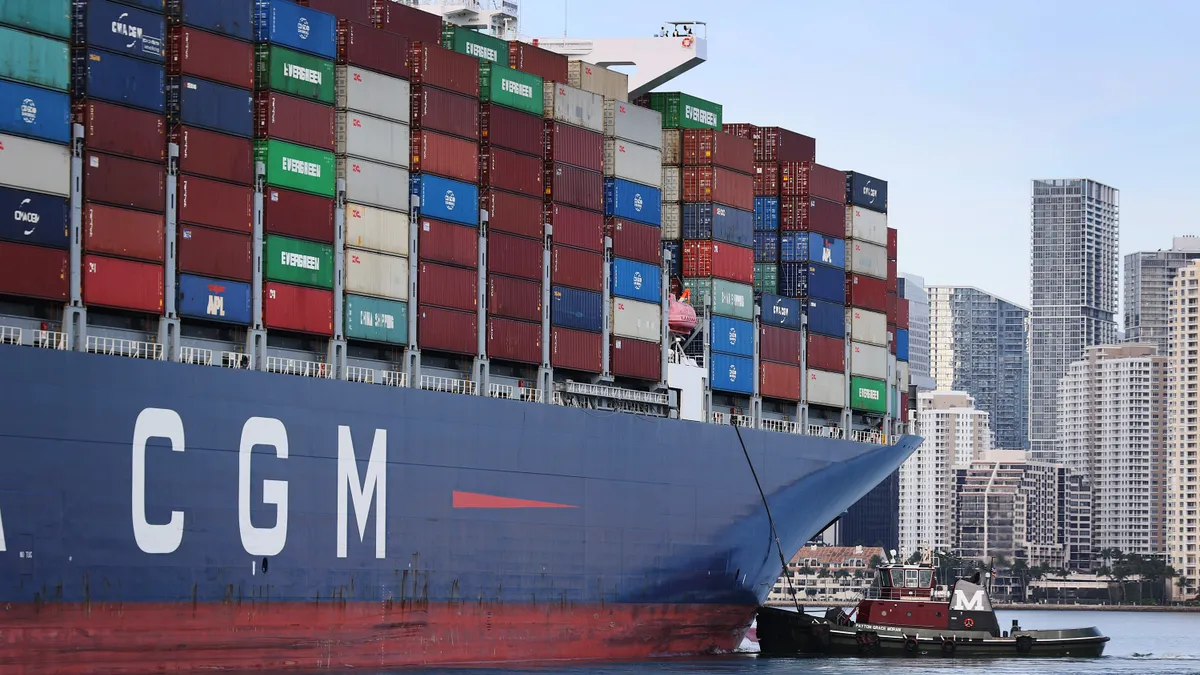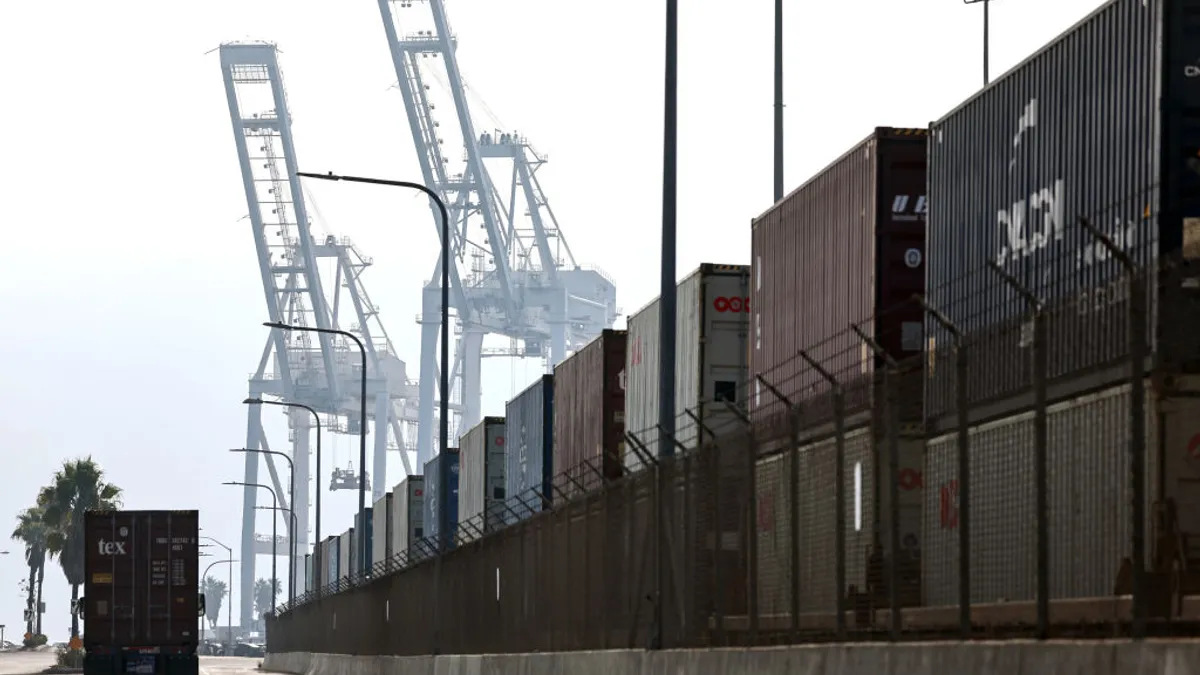It’s April 2021 and three cargo pallets are ablaze at the Hong Kong International Airport, industry publication The Loadstar reported at the time. The cause? Vivo smartphones that caught fire after lithium ion batteries underwent an uncontrolled release of energy, also known as “thermal runaway.”
The incident led Hong Kong Air Cargo to no longer accept shipments from logistics companies Cargo Link Logistics and Sky Pacific Logistics HK, in addition to a full ban on shipping Vivo phones.
This is just one of the many fires sparked by damaged or defective lithium batteries, threatening the life of cargo crews or passengers. Between March 2006 and December 2023, the Federal Aviation Administration reported 505 aircraft incidents involving lithium batteries.
Dangerous goods — or "DG" — compliance is vital for aircraft safety, and disregarding regulations can be considered a criminal offense, with supply chain partners subject to penalties.
“For a Freight Forwarder, assessing the DG competence of shippers is challenging,” Peter Penseel, COO of air freight at Ceva Logistics, told Supply Chain Dive in an email. “While the Shipper’s Declaration of Dangerous Goods is signed by the shipper, declaring compliance with all regulations, trust is crucial.”
DG diligence will only become more critical as the demand for shipping lithium batteries is poised to increase over the next five years due to the demand for technology products and EV vehicles, Penseel said.
“The entire supply chain and companies at each step in the process must be committed to handling these products in the safest way possible,” the COO added.
How to combat dangerous goods risks
But not every shipper is compliant or truthful.
“We have processes and procedures in place that help us detect undeclared goods,” Penseel said. “Additionally, we provide training materials to create awareness among our employees for recognizing Hidden Dangerous Goods, assisting customers in avoiding issues. Increased awareness of safety and financial consequences can foster accountability among industry players.”
Ceva Logistics is one of the logistics providers driving DG compliance and safety, and was the first company to receive the CEIV Lithium Battery certification from the International Air Transport Association in 2021. Now, Ceva operates several CEIV-certified air freight stations across the globe, including Germany, South Korea and China.
“People’s lives are at stake. Regulatory bodies need to be ready to ‘name and shame’ those who abuse or ignore important safety guards related to dangerous goods like lithium batteries.”

Peter Penseel
COO of air freight at CEVA Logistics
Penseel noted that Ceva occasionally deals with shippers lacking DG training or awareness, and often refer them to local and specialized DG consultancies to help with packing, labeling, marking and preparing Dangerous Goods Declaration documents.
“During the booking and acceptance processes, we provide feedback on dangerous goods documentation/packages and request corrections before forwarding to the airline,” Penseel said, further noting that the forwarder has a dedicated Global Dangerous Goods team that addresses any DG-related document or shipment queries.
Penseel also added that Ceva is currently piloting web-based tools to facilitate some DG processes to “improve overall performance in the DG supply chain.”
IATA has also created an automated compliance solution that aims to streamline dangerous goods acceptance, called “DG AutoCheck,” to combat the chances of errors when manually cross-referencing shipper declarations. Errors can lead to rejections, fines and other penalties.
Connect API is the newest feature of IATA’s DG AutoCheck for dangerous goods and was launched alongside ground handler dnata and IBS Software in April 2023. The API automates the process of transferring data from DG AutoCheck to other systems in the value chain, according to the press release.
Regulatory support is needed to boost safety
The industry needs more than operational improvement to support DG safety. Regulatory support from governing bodies is also critical.
“We also believe that the industry needs the support of regulatory and governmental bodies to enforce existing regulations to deter those who would jeopardize safety through means of false declarations or paperwork,” Penseel said.
He added that while the industry is taking steps to improve safety, there “must be much stiffer penalties and real, consistent enforcement from local and international bodies to curtail false declarations from shippers willing to risk lives to avoid properly declaring shipment contents.”
IATA and the International Civil Aviation Organization recently extended their long-standing cooperation regarding global standards for the transport of DG by air, according to a Jan. 22 press release.
“People’s lives are at stake,” Penseel said. “Regulatory bodies need to be ready to ‘name and shame’ those who abuse or ignore important safety guards related to dangerous goods like lithium batteries.”
What’s next?
Despite the challenges, DG pros feel more confident about their companies’ DG operations than they did the year prior, according to the 2023 Global Dangerous Goods Confidence Outlook. The results were derived from a survey of over 1,000 DG pros conducted between April 18 and June 1, 2023, with questions developed by Labelmaster, IATA and HCB.
However, 56% of respondents said they expect the mis-declaration of DGs to either stay the same or worsen.
“Ongoing supply chain disruptions along witht he continued growth of e-commerce and markets that rely on DG — from consumer products to electric vehicles — has made shipping goods safely and compliantly increasingly difficult,” Robert Finn, VP marketing, project management and analytics at Labelmaster, said in a statement. Although companies showed operational improvements, the survey showcased the “need to reduce complexity and enhance digitization to address future supply chain and regulatory challenges.”
Non-compliant DG shipments are rejected by carriers, prompting significant delays, extra costs and possible fines, Ceva’s Penseel said. “Therefore, it is in everyone’s interest to collaborate on ensuring compliance for smooth freight handling, safe air transport, and customer satisfaction,” he said.



















